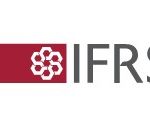The Global Reporting Initiative (GRI) today welcomed the release by the International Organisation for Standardisation (ISO) of the report on social responsibility prepared by its multi-stakeholder Advisory Group on Social Responsibility (SR) . The report responds to a mandate from ISO to make recommendations to the international standards body about what role there might be for ISO to play in the development of SR related standards.
One of the key recommendations from the advisory group is that ISO should move forward with the development of a guidance document in the area of SR which focuses on SR operationalisation, stakeholder engagement, and enhancing the credibility of claims, and that this document should be developed in a multi-stakeholder, transparent manner, within the context of existing international initiatives in this field.
"GRI has greatly valued the opportunity to participate in the advisory group since its inception in early 2003, and is glad to have been a part of the consensus based outcome that ISO does have a contribution to make in the SR field" said Paul Hohnen, GRI’s Director of Strategic Development. "The potential outcome of any ISO work in the area going forward will be results-oriented and will complement existing global tools already in place for promoting more responsible behaviour by all organisations in key areas such as human and social rights and the environment."
The group’s recommendations are now scheduled to be considered by ISO’s Technical Management Board (TMB), following a high-level ISO international conference on the subject to be held in Stockholm on 21-22 June, 2004, in which GRI will also participate.
Noting that GRI is expressly referred to in the advisory group’s report, Hohnen commented that GRI was well placed to work in synergy with ISO should the TMB decide to take the recommendations forward. " As the leading global sustainability reporting framework, used by over 400 organisations in 40 countries, GRI ‘s experience with sustainability performance reporting and multi-stakeholder processes can be an asset to ISO’s work. Working with initiatives such as the International Labour Organisation (ILO), the UN Global Compact, the OECD Guidelines for Multinational Enterprises and the GRI, ISO has a key role to play in advancing sustainable development by integrating more responsibile behaviour into the workplace."



